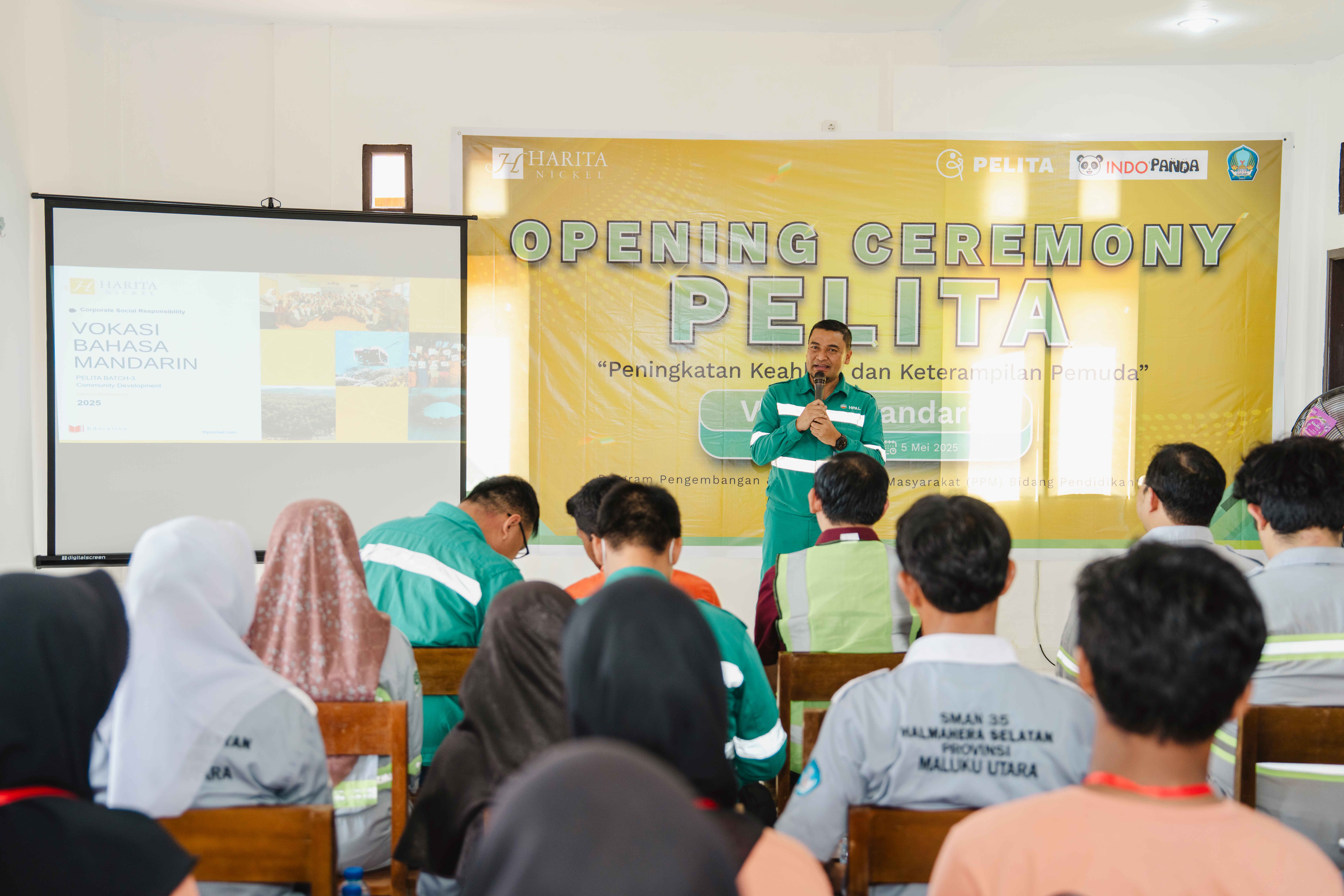


07 May 2025
Harita Nickel has launched the third batch of its flagship program, PELITA (Youth Skills and Competency Development Program), as part of its commitment to sustainable development and community empowerment around its operational areas. This batch focuses on Mandarin language vocational training in response to the industry's evolving demands and increasing employment opportunities.
Ifan Farianda, Manager of Community Development at Harita Nickel, stated that PELITA is a cornerstone initiative within the company’s Community Development (PPM) framework. The program is designed to equip local youth with practical, workforce-ready skills that align with today’s job market demands.

“Our goal is to empower young people in the communities around our operations with competencies that enhance their employability, both within local markets and on a broader scale,” said Ifan.
Previously, Harita Nickel successfully implemented the first and second batches of the PELITA program, which focused on technical training such as wheel loaders and overhead crane operations. In its third iteration, the program shifted its focus to Mandarin language training, recognizing the strategic importance of the language amid increasing foreign investment, particularly from China, which has introduced new communication challenges in operational settings.
“Mandarin has become one of the most important international languages today. With the growing presence of foreign partners and Chinese expatriate workers in Indonesia, there is a rising demand for local talent capable of communicating effectively in Mandarin,” Ifan explained.
To ensure high-quality delivery, Harita Nickel has partnered with Jakarta-based Mandarin training providers with international affiliations in Singapore. The program spans approximately six to seven months and is designed to guide participants through three internationally recognized HSK (Hanyu Shuiping Kaoshi) certification levels: HSK 1, HSK 2, and HSK 3.

A total of 30 participants have joined the Mandarin language training program, representing two of the company’s partner villages: Soligi and Kawasi. The program is structured into two categories: a regular class for high school graduates who are currently unemployed and a student class targeting Grade 11 and 12 high school students.
This strategic approach is designed to equip participants with essential skills early on, preparing them for future employment or higher education opportunities, including the potential to pursue further studies in China.
The training is anchored in the HSK (Hanyu Shuiping Kaoshi) framework, an internationally recognized standard for Mandarin proficiency. Participants are expected to reach HSK Level 3, which provides sufficient language capability to support basic workplace communication, particularly in entry-level roles such as junior translators or administrative staff. The certification is intended to serve as a foundational credential that broadens employment prospects for youth in Harita Nickel’s surrounding communities.
Ifan also underscored the importance of multi-stakeholder collaboration in ensuring the program’s success, ranging from village government support to actively involving participant’s families.
“We hope all parties will work together to ensure this program runs smoothly and delivers tangible benefits to the next generation living around Harita Nickel’s operational areas,” he concluded.
Go Top